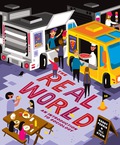
Concept introduction
Symbolic interactionism, the conflict theory, and functionalism can provide a look into all levels of the educational system.
Explanation of Solution
Suggested response
Consider the idea from the symbolic interactionist perspective. Upon studying elementary students, theorists contend that the expectations that teachers have of students will have an effect on their performance. Now think about this at the college level. Do teachers place those same expectations on students? Think about the lecture hall of 150 students. Does the instructor know all students and place expectations on them? Consider how elementary and high school students remain with the same teacher, usually for a school year. Now picture the college student who might see the instructor for a few hours a week for several months. How might this have an impact on the expectation of the teacher?
Conflict theorists contend that those who come from wealth have access to a better education than those who come from poorer areas. Schools in rich districts can provide more resources than schools in low-income areas. When thinking about this in terms of college, consider how those with access to resources might have more of a chance to attend and complete a postsecondary degree. Think about the money involved in obtaining a college degree and how those with few resources might have difficulty doing so, once again leading to an unequal playing field.
Functionalists believe there is a place for everyone in society. Schools reproduce the class structure that is in place so that every job will be covered by someone. There is a need for blue collar workers, white collar workers, and top level managers. Think about how by allowing schools in both wealthier and poorer districts to reproduce what is occurring in society, we might keep society stable and fulfill all roles. Consider how functionalists might think that college is not necessary for all students because college degrees are not needed for many job that need to be filled in society.
Want to see more full solutions like this?
Chapter 10 Solutions
EBK REAL WORLD:INTRO.TO SOCIOLOGY
- eelancer X English task 1.pdf - Google Driv X kq_A8Yyhcg5Muq83vtY5jmlvjd6ITE/view + Open with Google Docs Task Requirements: Word Count: 300-400 Formatting Style: MLA (for more information click here) *** A minimum of 1 reliable source must be used! Any sources must be properly cited according to the formatting style assigned Many people disagree about the appropriate age to allow children and young adults to use social media. Write an essay that argues your viewpoint about the issue. Develop your claim with reasons and evidence, and form a rebuttal to argue against a counterclaim. Page 1 / 1 Q + 26°C Mcarrow_forwardDCS cans certification exam answers micaharrow_forwardDescribe a business that has used backcasting or scenarios to assess a situation and then developed a strategy to achieve their goals? what are the obstacles they faced ?arrow_forward
- Why could Backcasting be considered the most useful futuring method? how does the use of modules and simulations relate to futuring? is this method effective?arrow_forward"Literature is able to challenge perceptions by capturing the voices of frequently silenced characters". In the light of this comment show how Alexander Masters is successful in promoting Stuart's voice in Stuart: Alfie backwards. Include any quotes which are relevant.arrow_forwardBased on the Practical Foresight GuideLinks to an external site.: select ONE of the futuring methods from the guide and apply it to the Partners in Care problem. PROBLEM to SOLVE from Partners in Care: Increase number of face-to-face/in-person volunteers! As a growing nonprofit, Partners in Care increased the number of virtual volunteers during the pandemic. However, they need more face-to-face (in person) volunteers to help with driving clients to appointments and handyman work. Along with these solutions, they would love to have creative ways to recruit young volunteers to support social media and communication needs. short-term (within the next 3 months) long-term (within the next 2 years)arrow_forward
- If you had to choose one futuring method, which one would be the most useful and why?arrow_forwardWho was John Evander Couey was, what crimes he committed, and who the child was that he harmed. Please include referencesarrow_forwardHow have economic crises such as the Great Depression, the 2008–2009 recession, and the COVID-19 pandemic impacted families in both practical and emotional ways? How do these events continue to shape family life today? In what ways has the definition and structure of “family” evolved in the 21st century? How do these changes reflect broader shifts in societal values, gender roles, and legal recognition of diverse relationships? What are some of the major economic and social challenges facing families today, and how do these challenges differ across social class levels, particularly for working-class and middle-class families? How do you think the increasing visibility of same-sex families, domestic partnerships, and cohabitation without marriage will influence societal norms and policies around family in the coming decades? Given current trends, what do you envision family life will look like in the future—by 2030 or 2040? How might factors like technology, economic instability,…arrow_forward
 Social Psychology (10th Edition)SociologyISBN:9780134641287Author:Elliot Aronson, Timothy D. Wilson, Robin M. Akert, Samuel R. SommersPublisher:Pearson College Div
Social Psychology (10th Edition)SociologyISBN:9780134641287Author:Elliot Aronson, Timothy D. Wilson, Robin M. Akert, Samuel R. SommersPublisher:Pearson College Div Introduction to Sociology (Eleventh Edition)SociologyISBN:9780393639407Author:Deborah Carr, Anthony Giddens, Mitchell Duneier, Richard P. AppelbaumPublisher:W. W. Norton & Company
Introduction to Sociology (Eleventh Edition)SociologyISBN:9780393639407Author:Deborah Carr, Anthony Giddens, Mitchell Duneier, Richard P. AppelbaumPublisher:W. W. Norton & Company The Basics of Social Research (MindTap Course Lis...SociologyISBN:9781305503076Author:Earl R. BabbiePublisher:Cengage Learning
The Basics of Social Research (MindTap Course Lis...SociologyISBN:9781305503076Author:Earl R. BabbiePublisher:Cengage Learning Criminalistics: An Introduction to Forensic Scien...SociologyISBN:9780134477596Author:Saferstein, RichardPublisher:PEARSON
Criminalistics: An Introduction to Forensic Scien...SociologyISBN:9780134477596Author:Saferstein, RichardPublisher:PEARSON Sociology: A Down-to-Earth Approach (13th Edition)SociologyISBN:9780134205571Author:James M. HenslinPublisher:PEARSON
Sociology: A Down-to-Earth Approach (13th Edition)SociologyISBN:9780134205571Author:James M. HenslinPublisher:PEARSON Society: The Basics (14th Edition)SociologyISBN:9780134206325Author:John J. MacionisPublisher:PEARSON
Society: The Basics (14th Edition)SociologyISBN:9780134206325Author:John J. MacionisPublisher:PEARSON





